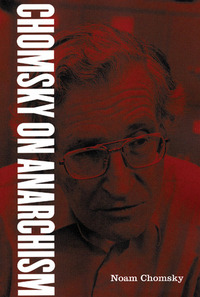Take a photo of a barcode or cover
informative
inspiring
medium-paced
It definitely reads like a set of notes and doesn’t focus on the quality of structure and depth.
That being said, it does give some interesting ideas and historical evidence that’s new to me.
That being said, it does give some interesting ideas and historical evidence that’s new to me.
I love you, Chomsky, but this book is basically a random assortment of writings, some of which is amazing, but it's mostly disjointed.
informative
reflective
medium-paced
challenging
informative
reflective
medium-paced
Fun mix of philosophy and word use and sequential events. I highlighted a lot.
challenging
informative
slow-paced
challenging
informative
slow-paced
challenging
informative
inspiring
reflective
slow-paced
I think the foundational theory is interesting, but Chomsky loses me when he tries to translate anarchism into a political reality. The kind of "anarchism" Chomsky discusses is one made for liberal elites, who have the privilege of showing up at a protest, perhaps throwing a brick or two, then going home with no consequences. Plus, this book falls into the general issue I have with socialism/communism/any kind of class-based political ideology, where race/gender/age/Indigeneity just comes as an afterthought.
I sympathize with Chomsky's insights (overally speaking), but I found this book somehow boring, scattered and superficial. What I enjoyed most was the part of the Spanish Civil War, where he highlights some interesting and forgotten facts.
Anyway, I would like to point out that Chomsky scope on anarchism is, sometimes, partial and flawed, just fixed on anarcosindicalism.
Just two examples:
-He strongly ties anarchism and radical marxism, what is debatable.
-He envisages anarchism from a narrow point of view, forgetting the major work by Saul Newman (Postanarchism, From Bakunin to Lacan), where different trends are fused, taking into account not only Bakunin or Proudhon but also Stirner, Nietzsche, Foucault, Lacan... Newman provides a good alternative (or complement) to the "old anarchism", indicating its mistakes.
Not the best Chomsky book to begin with, and a bit outdated (if you are acquainted with anarchism, you have to read also the newest anarquic Italian trend, -Bifo Berardi, Federico Campagna...- to see how big anarchism theory and practice could be).
Anyway, I would like to point out that Chomsky scope on anarchism is, sometimes, partial and flawed, just fixed on anarcosindicalism.
Just two examples:
-He strongly ties anarchism and radical marxism, what is debatable.
-He envisages anarchism from a narrow point of view, forgetting the major work by Saul Newman (Postanarchism, From Bakunin to Lacan), where different trends are fused, taking into account not only Bakunin or Proudhon but also Stirner, Nietzsche, Foucault, Lacan... Newman provides a good alternative (or complement) to the "old anarchism", indicating its mistakes.
Not the best Chomsky book to begin with, and a bit outdated (if you are acquainted with anarchism, you have to read also the newest anarquic Italian trend, -Bifo Berardi, Federico Campagna...- to see how big anarchism theory and practice could be).
informative
medium-paced





